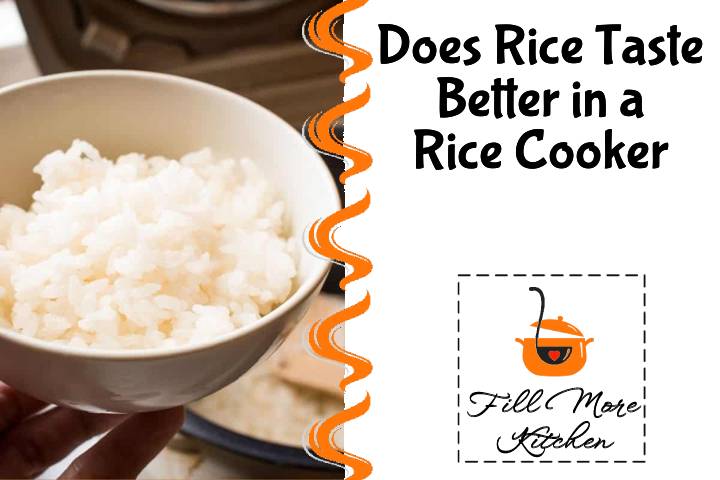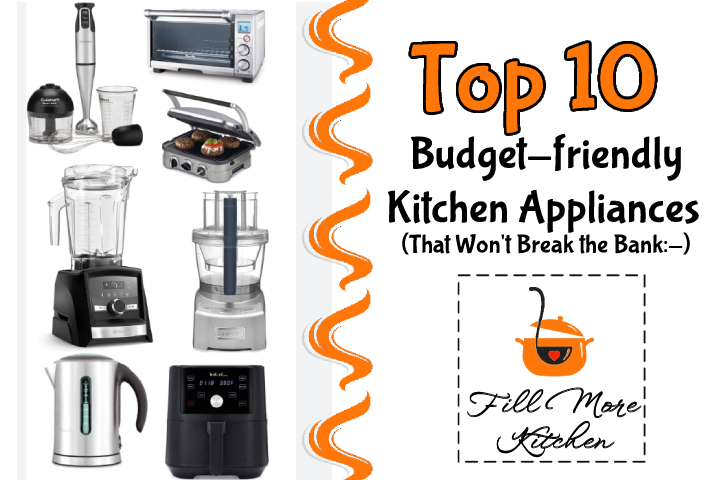Rice cookers are convenient appliances that can produce light, fluffy, and evenly cooked rice which is loved by everyone. Unlike stovetop and slow cooker-rice, rice cookers do not have issues with burning or overcooking. The rice made in a rice cooker is both delicious and smooth. If you are someone who loves to eat rice frequently, then investing in a rice cooker will definitely be worth it as it produces high-quality rice.
Using a rice cooker results in superior taste and texture of the rice as it is specifically designed to reach the ideal temperature and pressure for making perfect rice, ensuring that the rice retains its flavor while being cooked thoroughly both inside and out.
A rice cooker produces perfectly cooked rice effortlessly and with ease. The rice it makes is remarkably tender, not overly soft, and has a genuine rice taste that stands out. Unlike other cooking techniques, using a rice cooker eliminates the possibility of neglect-related hazards.
Why Do Rice Cookers Make Better Rice?
Rice cookers are designed to cook rice efficiently and evenly, preventing it from becoming mushy due to slow cooking and avoiding uneven cooking where some grains are overcooked while others remain undercooked, which is a common problem when cooking rice on the stove.
Rice cookers are equipped with a gauge that signals the machine when the rice is cooked, thereby controlling the temperature and cooking intensity. The gauge can detect if the rice is done or not and activate the “warm” function to maintain its warmth without overcooking it.
Rice cookers eliminate the possibility of over-saturating and over-boiling the rice by using all the water in the cooking process, which prevents the rice from becoming excessively wet and mushy as the water evaporates.
Be mindful of the amount of water you add! As we have discussed in a previous article, it is essential to include water when using a rice cooker. If too much is added, your rice may become overcooked and mushy. On the other hand, if not enough is used, it could end up undercooked or even burned.
However, the rice cooker is equipped with measuring lines that can assist you in obtaining the correct amount of rice. It is recommended to follow these lines as closely as possible and make adjustments according to your preference.
To comprehend how a rice cooker cooks rice effectively, it is beneficial to contrast it with alternative cooking techniques.
How do Rice Cookers Compare with Slow Cookers and Stove Top Rice?
Rice cookers have a distinct cooking method compared to stovetop and slow cooker techniques. Unlike slow cookers, which use low heat to gradually warm the water and cook food, rice cookers are designed to quickly heat up the water and maintain a consistent temperature throughout the cooking process. As a result, slow-cooked foods like meats and potatoes may not be as suitable for rice cookers, but rice can benefit from this efficient cooking method.
Nevertheless, when it comes to rice, a slow-boiled method may not be desirable as it can result in a softer and mushier texture due to the rice sitting in tepid water, leading to an unpleasant eating experience.
When cooking rice on a stovetop, maintaining an even and steady temperature can be challenging, particularly for gas and open flame stoves, which can cause the rice to burn or remain uncooked inside if boiled for too long or at high heat.
By regulating the temperature and cooking rice at a faster pace, a rice cooker addresses the problems of unevenly cooked and mushy rice that can arise with slow cookers, taking only 20-40 minutes to prepare rice while slow cookers may take up to 2 hours.
Other Benefits of Rice Cookers
In addition to producing delicious rice, rice cookers offer convenience and versatility. Unlike stovetop cooking, they require minimal supervision during use. Furthermore, they can be utilized for preparing a range of dishes beyond just rice.
One advantage of using a rice cooker is its convenience. It requires minimal effort to produce a more enjoyable meal compared to cooking rice on the stovetop. All you have to do is add water and rice, then wait for it to finish.
For those with a busy schedule who desire a warm meal after a tiring day, rice cookers are an excellent option. These appliances transition from cooking to keeping the food warm without any manual intervention, ensuring that your rice remains fresh even if you need to step out for errands.
Aside from cooking rice, a rice cooker can also be utilized to prepare tasty oatmeal or other hot cereals, which is especially convenient for individuals with hectic mornings.
Just like rice, hot grain cereals can be cooked completely without turning into a soft and overcooked texture. Additionally, it is believed that hot cereal has a more intense taste and can fully absorb any extra seasonings.
Rice cookers can multitask as steamers for vegetables with the help of a steamer basket that comes with some models, allowing you to simultaneously cook rice and steam vegetables, ultimately reducing your cooking time.
If your rice cooker lacks a basket, you can alternatively place the vegetables on top of the rice when it’s halfway cooked, but this may result in the rice having a slight taste of the vegetables being cooked.
Are Rice Cookers Worth It?
If you are someone who is busy but still wants to prepare healthy and nutritious home-cooked meals, investing in a rice cooker is definitely worth it. Not only can it save you time and effort, but it can also produce better quality rice compared to other cooking methods. Additionally, these machines are versatile and can be used for preparing various dishes with great ease.
Rice cookers with higher prices usually offer more cooking options and can handle various types of food. However, it doesn’t mean that you cannot cook wild rice, brown rice, or other grains in a less expensive model. Some people argue that affordable models can prepare white rice well, but it becomes more challenging when dealing with different grains or types of rice.
One reason why rice cookers may not be the best option for some people is that lower-priced models typically offer only two options: cooking and keeping warm, limiting their ability to prepare a variety of dishes.
While the price of high-end models can reach up to $100-$170, they offer greater versatility and more settings, which could be beneficial if you plan on cooking various types of grains and foods.
How to Care For Your Rice Cooker
Cleaning your rice cooker is crucial for both your health and the durability of the appliance since rice must be meticulously removed from the machine after every use; otherwise, bacteria can develop due to the fermentation of rice caused by moisture and aging.
As rice cooks, the water can become thick due to its starch content, and it is important to thoroughly clean every crevice and the cooking tray to remove any residue left behind.
Assuming you clean it frequently, using hot water and dish soap should be sufficient to maintain your rice cooker in good working order and free of harmful bacteria. However, it is advisable to also clean the area beneath the steamer pot and the exterior (for cosmetic reasons, of course! After all, no one wants a filthy appliance).
Finally, it is crucial to clean the glass lid of the rice cooker meticulously after every use. Although often overlooked, this step is essential as the steam produced by the rice contains starch that can cause stickiness on the lid and promote bacterial growth.
You can also check this video about “Does Rice Taste Better in a Rice Cooker?”
Check out our top 10 reviews!
Related posts
https://fillmorekitchen.com/how-to-use-the-delay-timer-on-a-dishwasher/
https://fillmorekitchen.com/can-you-put-too-much-water-in-rice-cooker/
https://fillmorekitchen.com/can-you-leave-cake-out-overnight/
https://fillmorekitchen.com/whats-the-difference-between-a-pressure-cooker-and-an-instant-pot/
https://fillmorekitchen.com/can-you-eat-cooked-bacon-left-out-overnight/



